Filter by
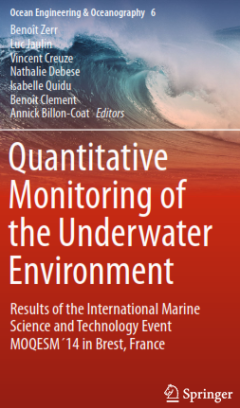
Quantitative Monitoring of the Underwater Environment; Results of the Interna…
Hasil Konferensi Internasional tentang Lingkungan Bawah Air, MOQESM’14. yang berlangsung di pusat konferensi "Le Quartz" di Brest, Prancis, pada tanggal 14 dan 15 Oktober 2014, Menarik untuk robotika laut dan hidrografi dengan aplikasi untuk pemetaan lingkungan pesisir dan survei infrastruktur bawah air, Menggabungkan kontrol teknis, persepsi dan lokalisasi, yang biasanya digunakan dalam robo…
- Edition
- 6
- ISBN/ISSN
- 978-3-319-32107-3
- Collation
- -
- Series Title
- Ocean Engineering & Oceanography
- Call Number
- 621.2 ZER q
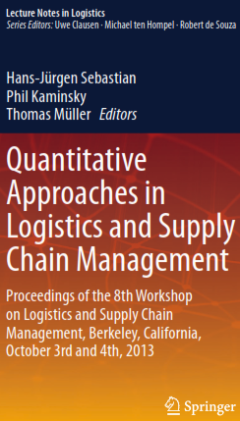
Quantitative Approaches in Logistics and Supply Chain Management; Proceedings…
Volume sumbangan ini menyajikan makalah penelitian terpilih dari lokakarya ke-8 tentang Logistik dan Manajemen Rantai Pasokan, yang diadakan pada bulan Oktober 2013 di Berkeley, California. Buku ini berfokus pada isu topikal pendekatan kuantitatif dalam logistik dan manajemen rantai pasokan, terutama yang mencakup lokasi fasilitas dan perutean lokasi; perutean dan penjadwalan kendaraan; desain …
- Edition
- -
- ISBN/ISSN
- 978-3-319-12856-6
- Collation
- -
- Series Title
- Lecture Notes in Logistics
- Call Number
- 658.8 SEB q
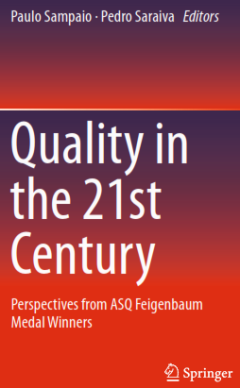
Quality in the 21st Century; Perspectives from ASQ Feigenbaum Medal Winners
• Menampilkan bab-bab yang disediakan oleh pemenang Medali ASQ Feigenbaum, • Merefleksikan keadaan terkini bidang kualitas dan kemungkinan perkembangan di masa depan, • Dirancang untuk menyegarkan dan memikirkan kembali konsep-konsep kualitas utama yang telah digunakan pada abad terakhir ;;; Volume ini mencakup berbagai topik yang termasuk dalam 'filsafat kuantifier', sebuah filosofi yang…
- Edition
- -
- ISBN/ISSN
- 978-3-319-21332-3
- Collation
- -
- Series Title
- -
- Call Number
- 658.4 SAM q

Environmental Justice and Sustainability in the Former Soviet Union
This is an examination of the awareness of environmental and social justice issues in the former Soviet republics - from the Western-style democracies of the Baltic region to the totalitarian regimes of Central Asia - and the resulting activism in those states.OCLC-licensed vendor bibliographic record.
- Edition
- -
- ISBN/ISSN
- 9780262255493
- Collation
- 1 online resource (vi, 296 pages) :illustrations.
- Series Title
- -
- Call Number
- -

Engineering Play: A Cultural History of Children's Software
How the influential industry that produced such popular games as Oregon Trail and KidPix emerged from experimental efforts to use computers as tools in child-centered learning.OCLC-licensed vendor bibliographic record.
- Edition
- -
- ISBN/ISSN
- 9780262258913
- Collation
- 1 online resource (xii, 234 pages) :illustrations.
- Series Title
- -
- Call Number
- -

Managers of Global Change: The Influence of International Environmental Burea…
This title is an examination of the role and relevance of international bureaucracies in global environmental governance. After a discussion of theoretical context, reaserch design, and empiral methodology, the book presents nine in-depth case studies of bureaucracies.OCLC-licensed vendor bibliographic record.
- Edition
- -
- ISBN/ISSN
- 9780262258593
- Collation
- 1 online resource (xiv, 367 pages)
- Series Title
- -
- Call Number
- -
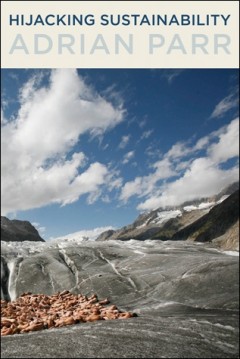
Hijacking Sustainability
How the sustainability movement has been co-opted: from ecobranding by Wal-Mart to the "greening" of the American military.OCLC-licensed vendor bibliographic record.
- Edition
- -
- ISBN/ISSN
- 9780262254861
- Collation
- 1 online resource (xii, 209 pages) :illustrations
- Series Title
- -
- Call Number
- -

Institutions and Environmental Change: Principal Findings, Applications, and …
"Institutional Dimensions of Global Environmental Change, a core research project of the International Human Dimensions Programme on Global Environmental Change (IHDP)."This overview of recent research on how institutions matter in tackling environmental problems reports the findings and policy implications of a decade-long international research project.OCLC-licensed vendor bibliographic record.
- Edition
- -
- ISBN/ISSN
- 9780262286589
- Collation
- 1 online resource (xxii, 373 pages) :illustrations
- Series Title
- -
- Call Number
- -

Reflections on Adaptive Behavior: Essays in Honor of J.E.R. Staddon
J. E. R. Staddon's colleagues and former students discuss Staddon's work as a "theoretical behaviorist" and his influence on their own research.John Staddon has devoted his long and distinguished career to the study of the adaptive function and mechanisms of learning. He did his graduate work at the famous Skinner Lab at Harvard in the early 1960s (supervised by Richard Herrnstein, who did his …
- Edition
- -
- ISBN/ISSN
- 9780262276023
- Collation
- 1 online resource (vi, 394 pages) :illustrations
- Series Title
- -
- Call Number
- -
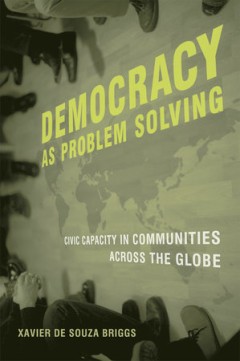
Democracy as Problem Solving: Civic Capacity in Communities Across the Globe
Case studies from around the world and theoretical discussion show how the capacity to act collectively on local problems can be developed, strengthening democracy while changing social and economic outcomes.OCLC-licensed vendor bibliographic record.
- Edition
- -
- ISBN/ISSN
- 9780262269292
- Collation
- 1 online resource (xiii, 374 pages) :illustrations, maps
- Series Title
- -
- Call Number
- -
 Computer Science, Information & General Works
Computer Science, Information & General Works  Philosophy & Psychology
Philosophy & Psychology  Religion
Religion  Social Sciences
Social Sciences  Language
Language  Pure Science
Pure Science  Applied Sciences
Applied Sciences  Art & Recreation
Art & Recreation  Literature
Literature  History & Geography
History & Geography